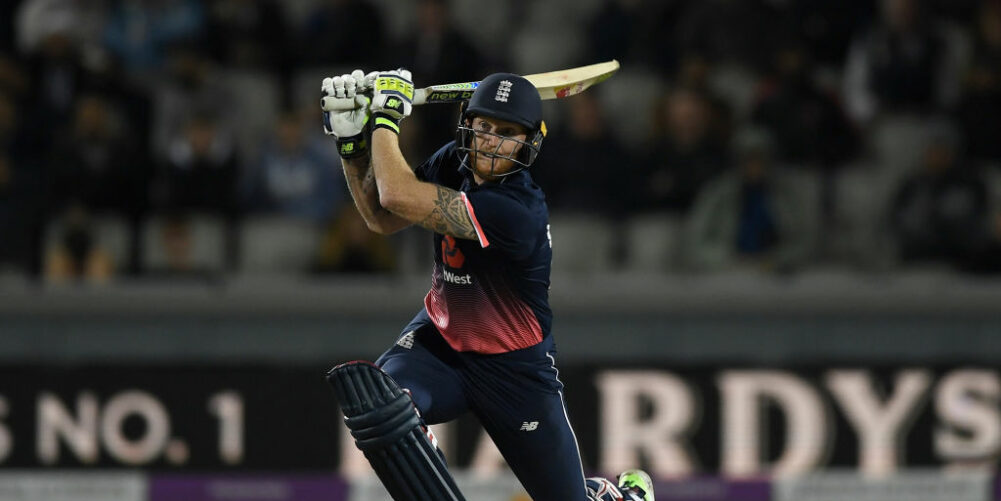(Photo: Getty Images)
We knew today’s international cricketers were coining it, but how many knew that some were getting U$20,000 (£15,100) for a Test match fee? It isn’t England’s players either, they come in just shy of that mark though they do earn the most for playing T20 internationals, some U$5,284 (£4,000) for three hours of their time according to figures unearthed by Cricinfo.
Framed this way, it looks like money for old rope – an expression Dale Steyn sort of used when he first played in the Indian Premier League. “Just four overs a match and it doesn’t matter if you get slogged around the park. It’s the easiest money you’ll ever make,” is what he said.
It was a refreshing if trite comment and one he quickly back-pedalled on. The best players only reach this rarefied point due to their talent and the years of hard work and sacrifice that have gone into refining it. They also have shorter careers than most in the commercial world, so need to earn big while they can, though that argument could change as Artificial Intelligence and robotics threaten to consign more of the wider workforce to pasture at an early age.
The concept of sacrifice is key here. Why would Ben Stokes, for example, who takes the equivalent of U$31,500 (£24,000) every time he plays a single Test, one-day international and T20 match for England (and like Joe Root he plays all three formats), place that in jeopardy, along with his U$995,000 (£756,000) central contract and the U$1.5 million (£1,140,000) he made in this year’s IPL, by being reckless on a night out in Bristol?
Wouldn’t a logical and pragmatic mind think, ‘stay fit for five years by avoiding late nights, stay away from trouble and binge-drinking, and I probably won’t need to work again?’.
When I first played for England in 1982, there were no central contracts, just county ones, which weren’t generous, and then match fees for international cricket – a basic £1,500 for a Test and £350 for a one-day international. Still, it is interesting to see that those sums, taking into account inflation over the 35 years, would be worth just over double today, which is a quarter of what the current England players are getting per game.
Satellite TV had yet to enrich the sporting landscape with their multi-million pound broadcasting deals and many cricketers, while acknowledging some responsibility to self and team, were hardly paragons of professionalism. Ian Botham, the cricketer Stokes most resembles from that era, rarely went to bed before 1am during Test matches even it meant drinking in his hotel room.
Indeed, team mates would often take turns to keep him company, an act that was part friendship and part duty, given he was our most likely match-winner and needed to be kept happy.
My own view was that the money on offer, even from playing regularly for England, was not life-changing so I wasn’t prepared to make great lifestyle sacrifices, an approach not unusual among professional cricketers of the time.
Don’t get me wrong. We didn’t have self-destructive streaks or the wilful desire to sabotage ourselves on a daily basis. But if something interesting came up, such as the chance to go to Elton John’s party at his house in Windsor, we’d take it, even if it was during the middle of a Test match, which it was.
I remember once, Doug Insole, Essex’s chairman and a stalwart of the club, questioning my “casual” approach when I was having treatment for a strained hamstring. “Why don’t you,” he asked, and this in the days before the Premiership, “want to be as fit as a first division footballer?”
“Well,” I said, “you pay me as well as a first division footballer and I’ll be as fit as one.” And I probably would have been.
These days, the large amounts of money being earned by players does, in the eyes of many of their paymasters, preclude them from having a life of self-determination.
Indeed, their day-to-day schedule is largely mapped out for them and heavily prescriptive in its ‘dos’ and ‘don’ts’. Yet part of Andrew Strauss’ philosophy is to get away from the nannying. Indeed, getting players to take responsibility for themselves is something he started when England captain.
It is a creed also favoured by Trevor Bayliss, England’s Australian coach, who, having struck up a great rapport with Stokes, will feel particularly let down by events in Bristol.
But then some people, and Stokes was wild well before he was wealthy, won’t change their stripes irrespective of how much money is at stake – an attitude to be admired were it not for the violence.












